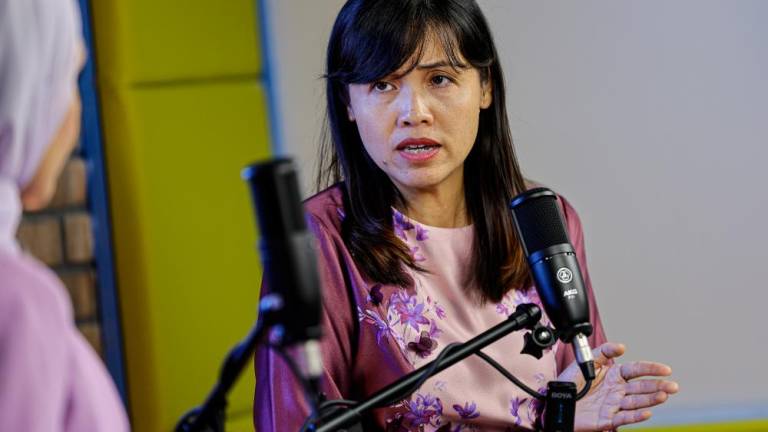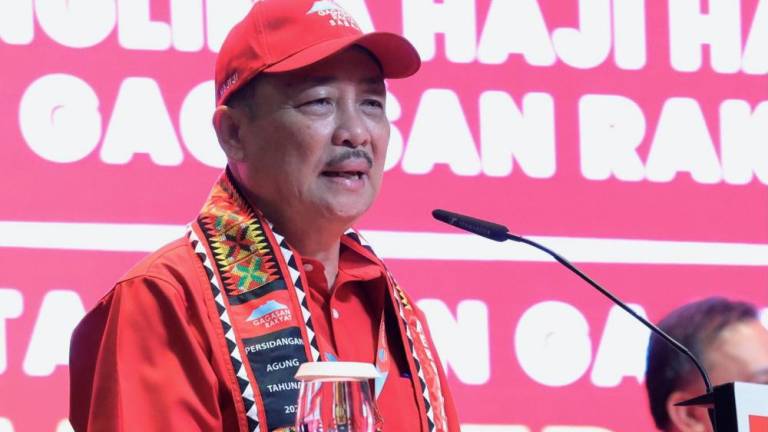THE Federal Land Development Authority (Felda) has had more than its fair share of glory. It was seen as a masterstroke and showpiece of Malaysia’s success in tackling rural poverty.
Felda will be 63 years old in July and no other government agency has made such an impact on the lives of rural folk as Felda.
History has rightfully credited much of Felda’s success story in the early days to our second prime minister, Tun Abdul Razak, who made rural development and poverty eradication the centrepiece of his government’s political agenda.
As such Felda has for a long time been regarded as the country’s most important political cog with 54 parliamentary seats dominated by Felda settlers.
The benchmark on the success or failure of developing the rural areas in Peninsular Malaysia is thus best reflected in what is sometimes labelled as “Felda politics”.
Umno, the dominant political power until it was toppled in last year’s general election, would naturally be most sensitive to the goings on and the needs of Felda settlers, sparing no effort or expense to maintain support among this huge political vote bank.
By and large, despite its massive size and scope, Felda for many years had been well managed but signs began to show of things going awry soon after the euphoria of the privatisation of Felda and the public listing of its subsidiary Felda Global Ventures (renamed FGV Holdings Bhd in 2012) had evaporated.
The controversial appointment of Tan Sri Isa Samad before FGV’s listing compounded Felda’s woes with many quarters expressing dismay that at a crucial time when what Felda needed most was a corporate person with a proven track record to helm it, a fading politician was put in charge.
Many had then criticised the appointment as a big mistake.
Since then, Felda has been a favourite punching bag especially for concerned NGOs and the media went to town with reports on one controversy and scandal after another.
In other words, Felda and its investment units have been making news or hogging the headlines all for the wrong reasons.
The Malaysian Anti-Corruption Commission (MACC) is investigating at least two mega deals, the Felda Investment Corp Sdn Bhd’s (FIC) acquisition of the Merdeka Palace Hotel in Kuching and its investment in a London property.
The Merdeka Palace deal made headlines when it came to light that FIC had overpaid for the asset in 2014 and MACC while investigating the London investment had discovered from seized documents that the company had paid an inflated price for the Kuching hotel.
Merdeka Palace was bought by FIC for RM160 million, well above its market worth of RM110 million, according to media reports.
FIC has since raised the white flag on Merdeka Palace and put it up for sale with industry experts saying it will have to be disposed at a huge loss.
Amid the raging controversies surrounding Felda, Isa stepped down as chairman in 2017.
And last December he was detained by the MACC and slapped with 10 charges of criminal breach of trust and nine charges of accepting bribes worth RM3 million in connection with the Merdeka Palace deal.
Many more stories about Felda’s wheelings and dealings were supposed to be revealed in a white paper scheduled to have been tabled in Parliament last December but the tabling has been postponed.
It is now expected to be made public during next month’s meeting of the Dewan Rakyat and everyone is waiting with bated breath.
Economic Affairs Minister Datuk Seri Mohamed Azmin Ali said the postponement was recommended by the Cabinet following the advice by the Attorney-General’s Chambers in view of certain legal issues that needed to be resolved.
The white paper will among other things focus on the strategic rehabilitation plans to enable its new management to frame a sustainable way forward for Felda’s recovery.
From a cash-rich entity, Felda is now financially lying at rock-bottom being saddled with a huge debt of RM8.05 billion with an almost empty cash-flow position.
Its new chairman, Tan Sri Megat Zaharuddin Megat Mohd Nor, an oil industry veteran and former chairman of Maybank, said Felda had started selling its non-strategic assets both locally and abroad to accommodate its liabilities.
Last September, assets worth RM2.2 billion were disposed to reduce its debt to RM6.5 billion which by any reckoning is still a major cause for concern for the new Pakatan Harapan government.
According to Megat Zaharuddin, with these measures in place, Felda could be back on track towards profitability again and be able to turn around at least in the next two years.
But as a hardcore newsman, I would certainly rank Azmin’s remarks on Felda that he made on Tuesday as the story of the year so far.
In an analogy, Azmin shows how the decision made to privatise Felda in the first place was a huge mistake and he lays the blame squarely on former prime minister Datuk Seri Mohd Najib Abdul Razak.
Azmin said Najib’s father Razak had set up Felda and opened up government land for the settlers to empower and elevate the economy of rural Malays.
“But then comes his son who privatised Felda ...
“Just look at the FGV shares,” Azmin said.
“From RM4.70 a share, it has plunged to only 30 to 40 sen per share.”
At the initital stage after its listing, the counter even hit as high as RM5.46.
Let us all hope that Felda is not beyond redemption especially for the critical purpose of addressing rural poverty.
Comments: letters@thesundaily.com














